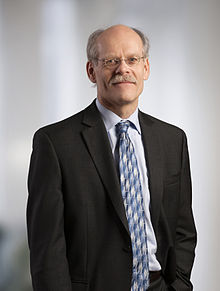At the end of last year, the Riksbank raised the repo rate for the first time in seven years. The Swedish central bank raised interest rates, surprising many in the market as policy makers chose to focus on low unemployment instead of an uncertain outlook driven by global trade conflicts. Governor Ingves therefore began this year’s first monetary policy hearing by giving the reasons for the rate rise. “As inflation has become established close to the inflation target and confidence in the target has strengthened, the need for a highly expansionary monetary policy has decreased slightly,” Governor Ingves said. The Riksbank’s inflation forecast is based on the repo rate being raised slowly in the period ahead. Sweden’s central bank held interest rates on Wednesday and said it aimed to raise them in the second half of the year, though doubts about the strength of economic growth and inflation could cause a rethink.

But Governor Ingves also pointed out how dependent the Swedish economy is on developments abroad and highlighted a number of uncertainty factors that may affect economic development going forward: the strength of the European economy, Brexit and the trade conflict between the United States and China. “Our repo rate path is a forecast, not a promise”, Governor Ingves said. “As always, monetary policy needs to be adjusted to the economic outlook and inflation prospects.”
Governor Ingves also said that the Executive Board is considering going from six to five monetary policy meetings a year. “We think that five meetings a year is about the right number to be able to conduct a well-balanced monetary policy. It would free up resources that can be devoted to in-depth monetary policy analysis. But such a change requires some advanced planning and it will therefore not be a question of changing this year’s announced meetings, but from 2020 at the earliest,” Governor Ingves said.

In her introduction, Deputy Governor Skingsley discussed the distributional effects of recent monetary policy, in light of the debate on the subject. However, the effects of an expansionary policy are not clear-cut from a distributional perspective. Certain groups have benefited from rising asset prices. At the same time, employment has increased to a historically high level. “The stronger labour market and reduced risk of unemployment play a major role for individuals with a weak connection to the labour market,” Deputy Governor Skingsley said. “Fundamentally, monetary policy is not an appropriate distribution policy tool, in part because its distributional effects are unclear, and also because it would be difficult to combine with the monetary policy task of maintain price stability,” Deputy Skingsley said in conclusion.












